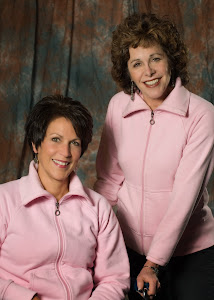There is a point that almost everyone eventually reaches, when say they say "Enough"! The storage capacity is maxed. There’s no room in the closet for another thing. There are boxes that have remained unexplored for so long, they sport layers of dust and mold. The reasons and timing may differ, but the conclusion is the same. They must do something about the stuff that prevents the home from being a comfort zone.
Only, often they don’t know where to begin. We suggest evaluating how much of the clutter is actually yours versus someone else’s. Who do you know that has been using your basement, extra bedrooms, garage, attic or storage locker to preserve their stuff for immortality? Yes. We are talking about children or friends who are avoiding making decisions, typically hanging on to vestiges of former lives, due to your generosity. Of course, some may be away at school or travelling and may be saving furniture and other possessions for when they have larger living quarters. But the vast majority of excess belongings that we encounter at our clients’ homes don’t fit into those legitimate categories. They are the rusted bed frame left behind by an old friend who has since moved to another city. Or, they are abandoned collections of mildewed magazines and stuffed animals, that have been simply forgotten. Or perhaps binders that should have been returned to an organization for which you had once volunteered.
If you want to get serious about getting your clutter under control, you would be well served to contact those people who have been the beneficiaries of mini-storage at no charge and request that they come to confront and remove their personal artifacts from your premises. You need to communicate a sense of urgency, specifying deadlines and your intentions regarding future use of the space. Treat it like an appointment. Don’t be afraid to explain that unclaimed items would be donated to charity. You will be amazed at how much space you will free up, by reducing the volume of storage used by the "other people" in your home.
Tuesday, August 5, 2008
Saturday, August 2, 2008
Failure to Launch
Back at the end of March, Good Riddance’s services became the subject of piece in our local Vancouver newspaper under the rubric of Do It Better (www.theprovince.com/doitbetter). The reporter wanted to shoot a video that would showcase our de-cluttering process. Our clients, members of the Baby Boomer generation, looking forward to retirement and allegedly “empty nesters” agreed to become the case study for the report. I say allegedly because although their twenty-something children had left home, their belongings had not. In their son’s case, he had moved downtown, but his bedroom remained frozen in time, housing his clothing, music, sports equipment, books and memorabilia that he hadn’t the room for in his small apartment. Their daughter had likewise moved out on her own, only to return several years later with her craft supplies, collectables and wardrobe. When she came home, she deposited her bags and cartons in the finished basement, converting a would-be media room into warehouse space. We were brought in to organize the “wrecked’ room into a rec room.
Ever since the release of the comedy, “Failure to Launch”, much has been written about this phenomenon of the “boomerang” kids and the economic, social and psychological drivers responsible for the behavior. After a point, what parents don’t fantasize about reclaiming the house for their own purposes – converting bedrooms into home offices, gyms, and meditation or craft rooms? Is it not a reasonable expectation that when they do leave, that adult children take their possessions with them and not leave them with Mom or Dad for time immemorial? As professional organizers, we encounter many situations similar to the one described above. Parents often walk a thin line in making their adult children feel welcome while postponing their own plans for a post-child centric abode. We believe it is important for parents to address this with adult children. Expectations must be communicated, lest resentments build. Adult children need to understand that their family home should not be treated as a giant storage locker. Clutter is everyone’s responsibility, no matter what age. Use it or lose it!
Ever since the release of the comedy, “Failure to Launch”, much has been written about this phenomenon of the “boomerang” kids and the economic, social and psychological drivers responsible for the behavior. After a point, what parents don’t fantasize about reclaiming the house for their own purposes – converting bedrooms into home offices, gyms, and meditation or craft rooms? Is it not a reasonable expectation that when they do leave, that adult children take their possessions with them and not leave them with Mom or Dad for time immemorial? As professional organizers, we encounter many situations similar to the one described above. Parents often walk a thin line in making their adult children feel welcome while postponing their own plans for a post-child centric abode. We believe it is important for parents to address this with adult children. Expectations must be communicated, lest resentments build. Adult children need to understand that their family home should not be treated as a giant storage locker. Clutter is everyone’s responsibility, no matter what age. Use it or lose it!
Subscribe to:
Posts (Atom)




